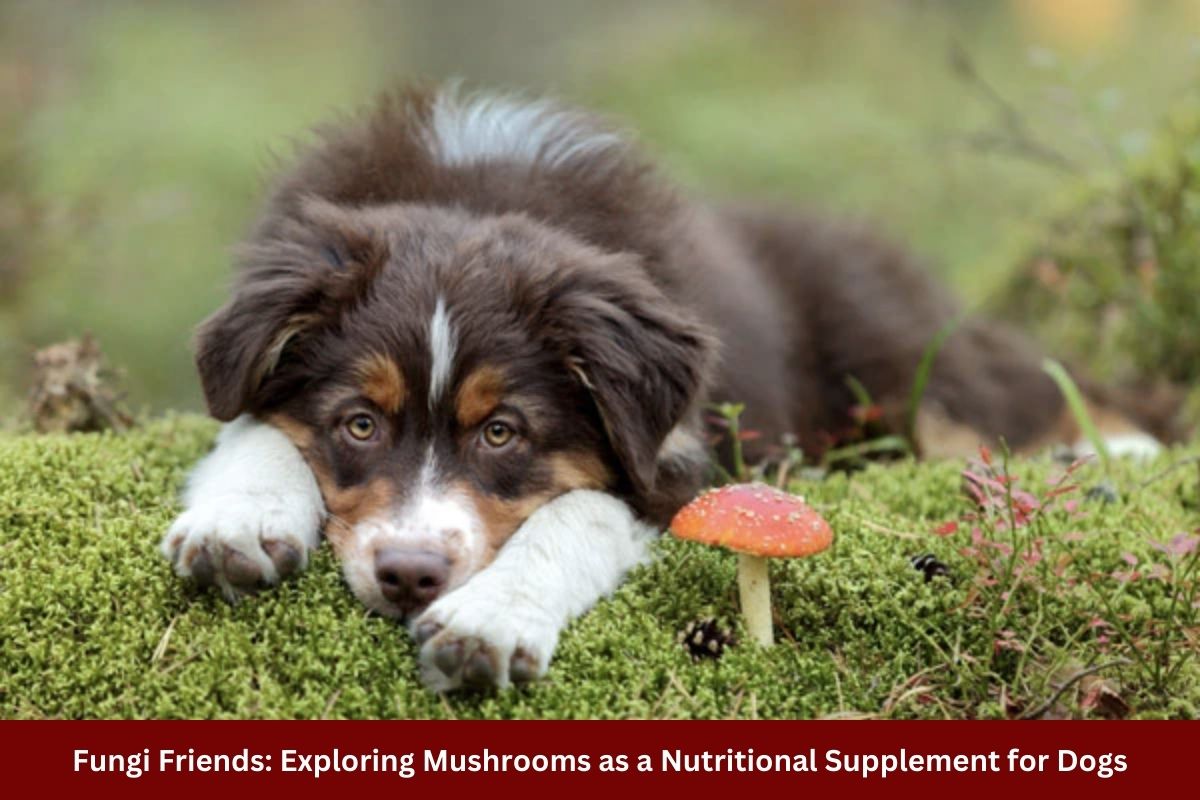In pet nutrition, mushrooms are carving out a unique space for themselves. An age-old ingredient in human diets and traditional medicine, mushrooms have started to garner attention for their potential health benefits as man’s best friend. Rich in vital nutrients, loaded with antioxidants, and known for their medicinal properties, mushrooms for dogs are making waves as an all-natural nutritional supplement. This article dives into the fascinating world of these humble fungi, exploring their benefits for canine health and providing insights on safely incorporating them into a dog’s diet. Intrigued? Read on.
A Fresh Perspective on Canine Nutrition
In the ever-evolving landscape of pet care and nutrition, mushrooms for dogs have emerged as a promising supplement.
Though relatively recent, this trend has deep roots in traditional medicine, where mushrooms have long been prized for their potent health-promoting properties. Now, the focus is on integrating this natural powerhouse into the diets of man’s best friend.
Unlocking the Magic of Mushrooms
Beneath the earthy, unassuming exterior of mushrooms lies a wealth of nutritional benefits. They are low in calories, high in fiber, and packed with essential nutrients. Moreover, they are excellent sources of antioxidants, which help fight off harmful free radicals in the body.
Mushrooms also contain significant amounts of vitamins, like B and D, crucial for maintaining a healthy metabolism and immune system. They are a veritable treasure trove of nutrients, making them an ideal addition to the diet of dogs.
The Power of Medicinal Mushrooms
There’s more to mushrooms than just their nutritional value. Certain mushrooms, often referred to as medicinal mushrooms, harbor potential health-boosting properties. These include shiitake, reishi, turkey tail, and lion’s mane, each bringing a unique set of benefits to the table.
Shiitake mushrooms, for instance, are known for their immune-boosting properties, while reishi mushrooms may help alleviate allergies and reduce inflammation. Turkey tail mushrooms are often used to support cancer treatment due to their high content of polysaccharopeptides, which can boost the immune system. Lastly, lion’s mane mushrooms may promote cognitive health, an aspect particularly beneficial for older dogs.
Ensuring Safe Consumption
Despite the many benefits of mushrooms, it’s critical to emphasize that not all mushrooms are safe for canine consumption. Some wild mushrooms are toxic and can cause severe health issues, even death, in dogs. Therefore, it’s essential to stick to commercially cultivated or specially formulated mushroom supplements for dogs.
When introducing mushrooms into a dog’s diet, it’s advisable to start small and monitor the pet for any adverse reactions. This could range from gastrointestinal upset to allergic reactions. In case of any negative signs, immediate veterinary consultation is recommended.
The Right Way to Serve Mushrooms
Though mushrooms are a potential superfood for dogs, their cell walls are composed of chitin, a material that’s hard for dogs to digest. As such, mushrooms should ideally be cooked before serving to a dog. Cooking not only breaks down the chitin, making the mushroom more digestible but also destroys any potential harmful bacteria.
Mushroom supplements for dogs, available in the form of powders or capsules, are another way to incorporate mushrooms into a dog’s diet. These products are usually made from medicinal mushrooms and are processed in a way that maximizes their health benefits.
A Word on Dosage
While mushrooms can indeed be a beneficial supplement, it’s crucial to get the dosage right. Overconsumption could lead to potential problems, including digestive distress. It’s advisable to consult with a veterinarian to determine the appropriate dosage based on the dog’s weight, age, and overall health.
In Conclusion
Mushrooms for dogs, particularly medicinal mushrooms, are a promising addition to canine nutrition. They offer an array of health benefits, ranging from improved immunity to potential anti-cancer properties. However, safety is paramount.
Always ensure mushrooms are sourced from reliable places, cooked properly, and given the correct dosage. With these precautions in place, mushrooms can truly become a dog’s fungi friend, adding a nutritional boost to their regular diet.
